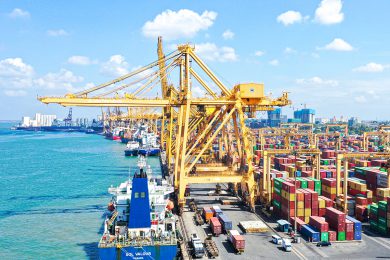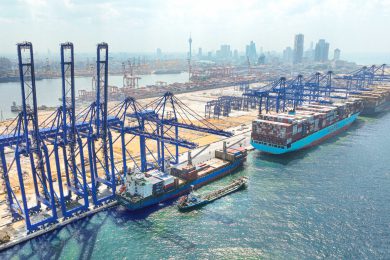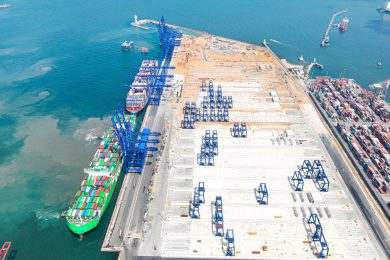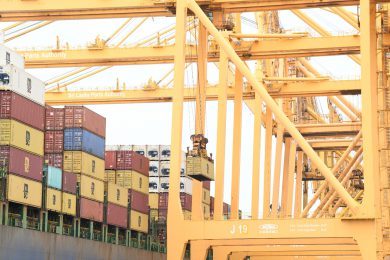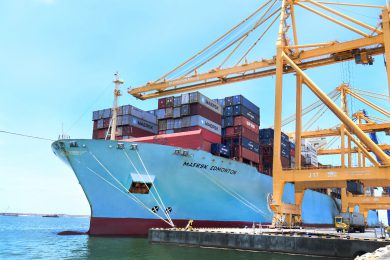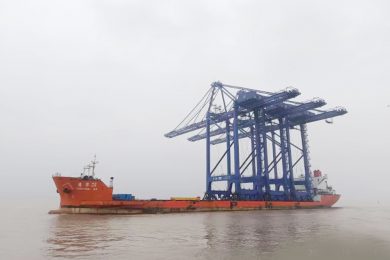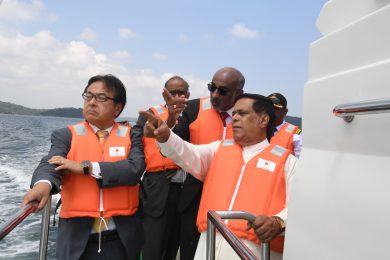As the rush to digital solutions pauses, respect for the role of seafarers has come from an unusual place. It should not surprise us because the human element remains the bedrock of our industry
by Richard Clayton
Even the Pope has found time to pray for stranded seafarers. In mid-June, the Holy Father in Rome expressed his gratitude to them for continuing to supply the essentials of life, despite the challenges of the high seas. The coronavirus pandemic has forced signifcant change on ships’ crews: long periods at sea without the chance to go ashore; unable to fly home to family and friends at the end of their contracted period. The crew change crisis is huge. Some estimate 150,000 seafarers are delayed; soon it will be 200,000 if the pace of repatriation does not improve.
Another 200,000 men and women wait for the chance to join their ships and serve the industry at the sharp end. In addition, there are hundreds of crew managers at specialist agencies, from Manila to Mumbai, working long into every night seeking a way to get health and immigration ofcials to assist. It has become fashionable to focus on technology in maritime. Digital solutions are the answer to all our problems. We need a deeper dive into the data, improved connectivity, innovative engineering. Yet shipping is technophobic. Compared to the world of gaming and simulation, where millions of players compete on a single online platform, shipping resembles a dinosaur. If aviation enjoys the speed of the hare, shipping plods along like Æsop’s turtle. He’s somewhere in the distance, somewhere in the past. That is, until coronavirus interrupts the relentless pace of change. Now the aeroplanes are grounded, but the ships still trawl around the world carrying the essentials, earning the praise of the pontif.
Covid-19 has reminded this industry of the importance of the human element. Because about 99.7% of all seafarers went home on or close to the day there were expecting, no-one thought about the 0.3%. Now 99.7% are frustrated, the 0.3% who make it home on time are considered lucky. The human element is overlooked. During a coronavirus webinar on remote surveying, one of the speakers recalled how, as a young surveyor, he walked on a ship. “The frst fve minutes are so important. You use your eyes and your ears, you touch things, and talk to the crew; you get a good impression of how a ship is run, even before you get to the master’s cabin,” he said.
Another former surveyor told me of a night he spent on a ship crossing the Bay of Biscay, terrifed for his life as the vessel pitched and rolled on its beam ends. He learned deep respect for that particular crew, and for all seafarers who risk their all to supply the essentials. Anyone who has read Rachel Slade’s Into the Raging Sea, a human-element account of how El Faro was overwhelmed by Hurricane Joachim, will have experienced a similar respect. It’s not that the world’s seafarers have been entirely forgotten.
A handful of airlines have spent time and efort in fnding seating solutions, ensuring each individual seafarer remains healthy and safe; and a handful of ports have gone out of their way to assess difcult situations from the seafarers’ perspective. The problem is that when digital solutions break down, the seafarer is on his own. The computer says no — and that’s the end of it. Reassessment of what’s important The coronavirus pandemic has forced a reassessment of what’s important in shipping. Safety at sea, insists one class society chief executive, is “a condition, a living thing rather than a protective layer”; it flows “from the top down”, said another. “It’s what is done when no-one is watching.” The reason why mental health has rocketed up the agenda is because distracted, listless, undernourished seafarers are a safety concern at the centre of a multi-million-dollar asset.
The human element remains at the heart of shipping: perhaps it needed a global pandemic to remind us of that. And whatever your position on the digitalisation of shipping, the dramatic events of Spring 2020 have underlined the signifcant role played by seafarers. Pandemics rarely drive trends; they merely accelerate what was there before. The trends in maritime have been digitalisation, decarbonisation, sustainability. We must now strengthen the foundation on which all these are based: the human element.
Richard Clayton is the Chief correspondent of the Lloyd’s List where this piece originally printed. Click here to read the latest issue of the LL



